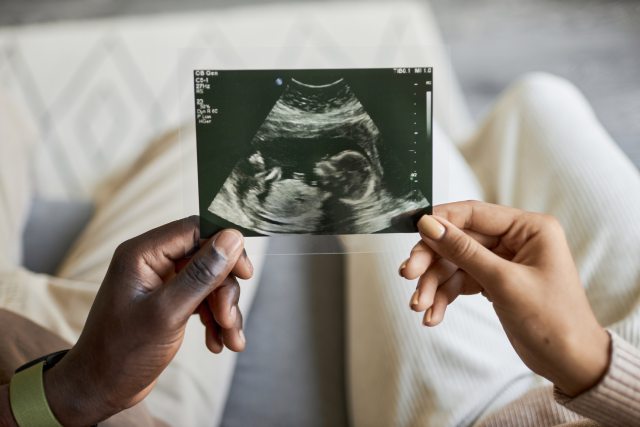Pregnancy is riskier than ever in America — here’s how to make it safer

Black Maternal Health Week (BMHW) in April raises awareness of the risks for expectant parents.
Having a baby should be a joyful time. But for many expectant parents in Black and Indigenous communities, pregnancy brings with it higher risks for health and safety.
“Maternal health is a serious topic, and one that we all can work to better understand and address,” says Michele Kulhanek, an experienced labor and delivery nurse who serves as PeaceHealth's perinatal safety officer. “These issues can affect all birthing people, but women of color often face additional barriers.”
For decades, experts have called out a crisis around pregnancy-related complications and deaths in the United States. These issues are nearly three times more common for Black people nationwide. In the Pacific Northwest, Indigenous communities face much higher rates.
Black Maternal Health Week (April 11-17) offers an opportunity to raise awareness of this imbalance and take action. Here’s how.
Understanding maternal health challenges
For many years, maternal health has been a growing concern in America. Pregnancy-related deaths are now at their highest rate since the 1960s, according to the American Medical Association.
Some complications are related to physical health. But others are linked to life circumstances, also known as social drivers or social determinants of health. Both may affect someone before they become pregnant — and lead to higher risks when they are expecting.
Examples include:
- Mental health conditions like anxiety and depression.
- Undiagnosed or untreated health conditions.
- Transportation and housing challenges.
- Lack of health insurance coverage.
- Limited access to prenatal care.
- High blood pressure or infections during pregnancy.
The good news is that with increased care and attention, we can make pregnancy safer. In fact, research from the U.S. Centers for Disease Control and Prevention shows that 80% of maternal deaths could be prevented.
“Addressing these disparities in maternal health takes time and effort,” Kulhanek says. “But when we know what’s behind the numbers, it can increase our opportunities to act.”
Straightforward ways to improve maternal health
Kulhanek has several pieces of advice for how healthcare providers can make childbirth safer, as does the CDC. But what can we do in our everyday lives?
Here are more than a dozen ways to advocate for maternal health — as expectant parents, friends and family, or concerned community members.
Expectant parents
Building a strong support network can help you manage the ups and downs of pregnancy:
- Find a provider you trust. Look for a reproductive health provider who listens to you and treats you with respect. This could be a family doctor, OB/GYN, nurse practitioner or midwife.
- Advocate for yourself. “Speak up about your concerns,” Kulhanek suggests, “and don’t hesitate to get a second opinion if needed.”
- Learn the warning signs of an emergency. Know what to look for and when to get help.
- Consider working with a doula. These non-medical professionals offer valuable support in all stages of pregnancy. Some even focus on your needs after a new baby comes home.
- Prioritize your mental health. Your emotional well-being during pregnancy is as important as your physical health.
- Seek culturally competent care. Programs like the Hear Her Campaign for Indigenous communities and the Black Mamas Matter Alliance offer maternal health resources that honor diverse birthing traditions.
Friends and family
When someone in your circle is expecting, you can help them take care of themselves as well as their growing baby.
- Offer to go with your pregnant loved one to doctor’s visits and help them ask questions or share concerns with their provider.
- Encourage your pregnant loved one to seek culturally competent care.
- Educate yourself about pregnancy risks and concerns.
- Learn the urgent warning signs that a pregnant loved one needs immediate care.
- Share information about warning signs with pregnant friends and make sure they have clear plans for handling pregnancy-related emergencies.
- Be there to support your loved one through follow-up visits after pregnancy.
- Check in on the family in the weeks after they return from the hospital.
Community members
- Support organizations working to reduce healthcare disparities.
- Listen to Black and Indigenous people when they raise concerns. “The communities most affected by this crisis know best how to fix it,” Kulhanek says. Amplify their voices whenever possible.
- Advocate for expanded healthcare access.
- Check in on new parents in your community.
Working together for safer births
Maternal health is a prime example of the saying “a rising tide lifts all boats.”
Think of it this way, Kulhanek says: “When we improve care for those facing the greatest barriers, we find blind spots in our healthcare systems. Better listening and respect can help every family have a safer and healthier birth experience.”





